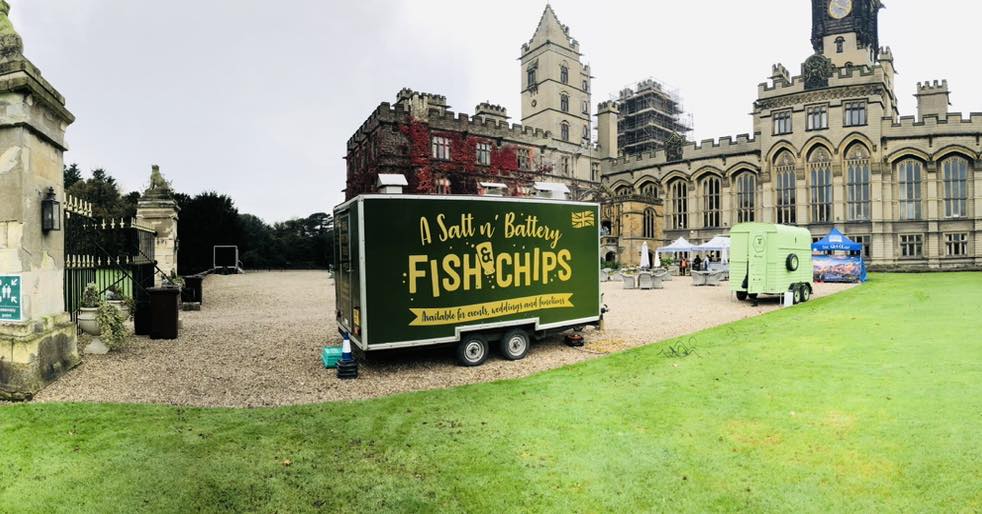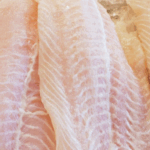What does working as a flight attendant on private jets have in common with serving fish and chips from a trailer? It’s a question Alison Brady, owner of A Salt ‘n’ Battery based in North Lincolnshire, can answer only too well
“They both involve feeding people,” says Alison. “Being on a private jet is like hosting a dinner party in the air. You’re still cooking, cleaning, washing up so the two are quite similar. And working in a confined space as well: tiny kitchens, tiny galleys, tiny trailers. Plus, when you’re 45,000 feet up, you can’t just nip to the shops to get something, the same as when you are in your trailer. You can’t nip into the back and rumble some more potatoes. You have to deal with what you’ve got.”
Alison is speaking from experience, having gone from flying Hollywood A-listers most of her life to launching a mobile fish and chip van in April 2022, a decision she made when Covid hit. Bringing air travel to a halt, Alison found herself grounded from the career she had pursued since graduating from university — and without any financial support.
“I was one of those unfortunate people that wasn’t furloughed but who couldn’t work and wasn’t entitled to any help either,” she says. “I thought, what can I do? What works up north? I thought, people like to eat, and takeaways were still operating during Covid. I did some market research, and it seemed that a mobile could be a good option.”
Investing in a small unit and a four-pan frying range, Alison’s first event was The Brocklesby Point-to-Point, a horse racing meet in Lincolnshire. “It was pretty epic,” recalls Alison. “The weather was foul and we had to be towed in by a tractor. I did start questioning my life choices but, we had a queue all day, the feedback was lovely and I thought, whatever happens moving forward, it cannot be as tough as this!”
Higher output trailer
Whether life has become easier remains uncertain for Alison, who works every available job. However, things are definitely busier for her business. The operation has expanded to a larger, higher output trailer, which Alison still tows, and now caters to high-profile private events for clients such as The BBC, Porsche, and Barratt Homes, where up to 250 meals pass over the counter in just two and a half hours. In addition to these events, A Salt ‘n’ Battery enjoys successful village rounds in and around Lincolnshire and Yorkshire throughout the week.
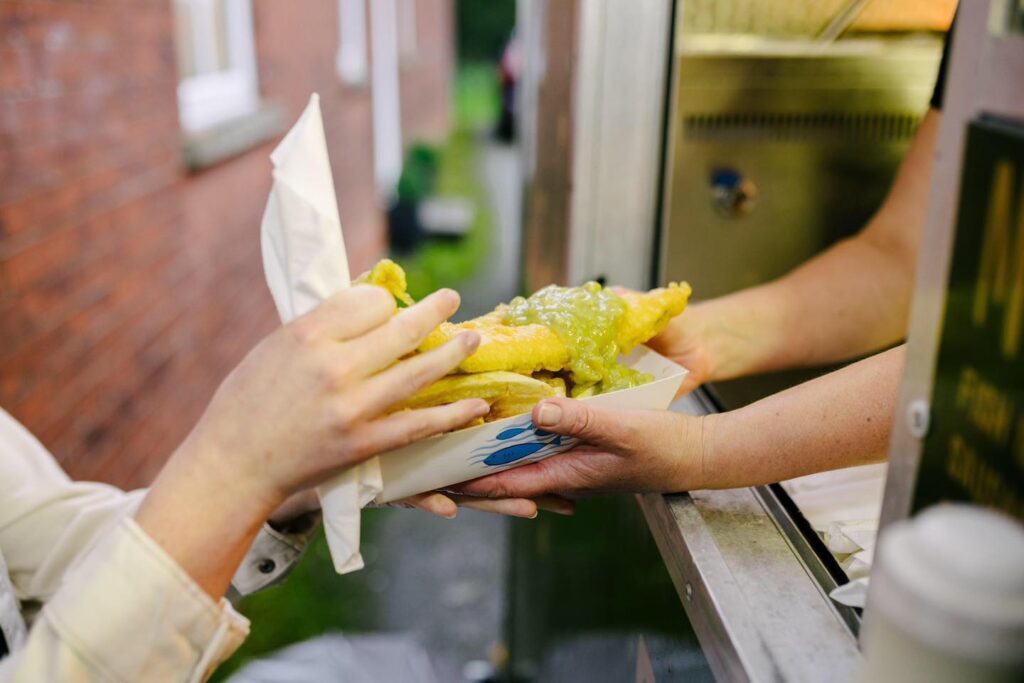
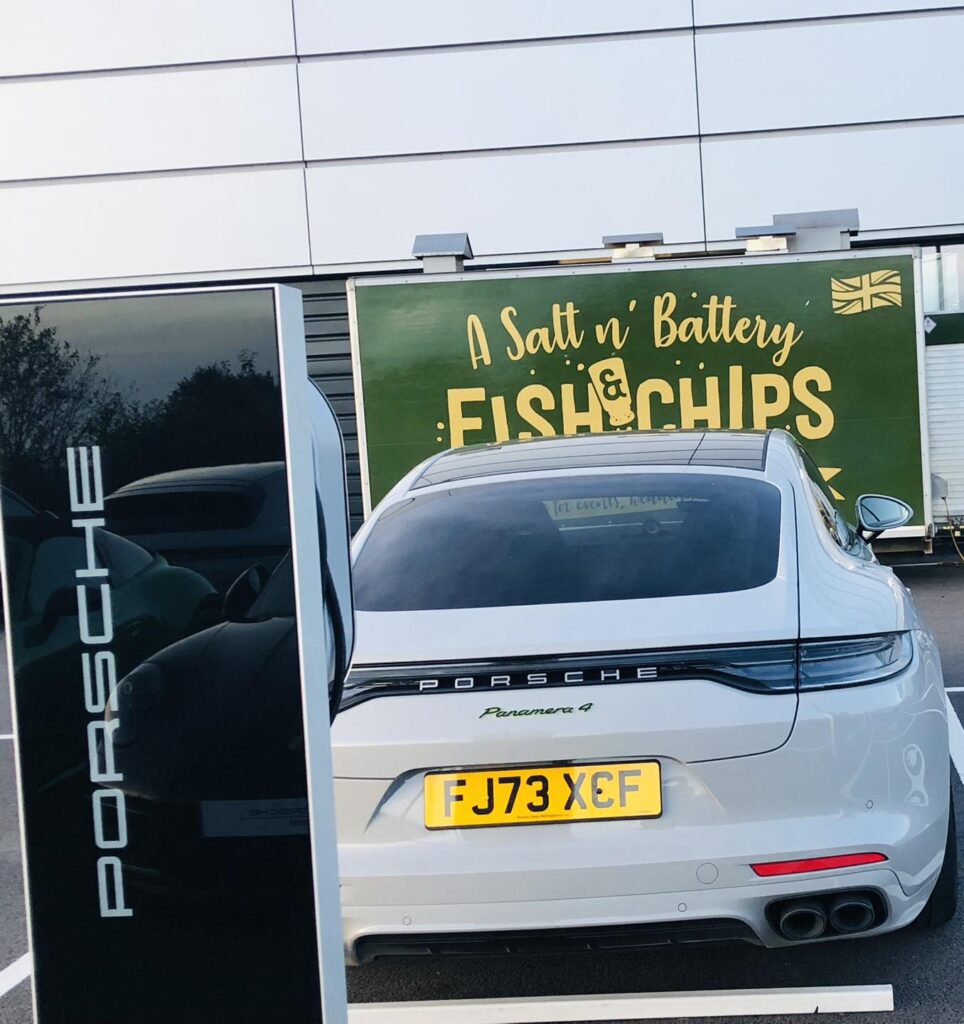
Key to success at both is the need for organisation and planning. “It’s not easy because there is so much to keep on top of – the fish, the chips, the peas, the curry – but we are used to it now. We get ahead by blanching the chips and then we know to put them on the second cook through and we can go ahead with the fish and everything is going to come out just lovely.”
Alison admits she hasn’t reinvented the wheel when it comes to the menu, but she takes pride in doing the basics exceptionally well. A Salt ‘n’ Battery serves a tight menu of fresh Grimsby haddock, chips made from locally sourced Yorkshire and Lincolnshire potatoes, sausages, fishcakes, mushy peas, and curry sauce. The business also caters to dietary requirements, offering gluten free fish and chips for coeliacs and halloumi for vegetarians. While there are a few vegan options available, Alison hopes to expand this offering, though she feels the market is limited by poor quality products and a lack of availability.
“I struggle to get good vegan products,” she says. “Vegan fish we’ve tried and it’s not the greatest, to be honest, and we’ve tried vegan cheesy chips, but the cheese doesn’t melt very well so, at the moment, vegans have the choice of chips, mushy peas and a bread roll, which is not good enough, really. I wish the industry could offer more for customers that works for what we do. It’s an area that they really could develop.”
Flexibility
The mix of local rounds and events that Alison has built up offer A Salt ‘n’ Battery flexibility. If a pre-booked event is cancelled due to bad weather, A Salt ‘n’ Battery will often announce a “pop-up” event on social media at a local village, for example. Likewise, if business is slow during a village round, Alison moves to the next location or adjusts the schedule to visit less frequently, such as once every two weeks or once a month. Meanwhile, corporate events enable Alison to keep prices lower for the local villages.
“I’m £9 for fish and chips on my rounds and £1 for peas or curry sauce, so people get a good meal for £10 and customers don’t even have to put fuel in their car to go and get it.
“Sometimes we might have to miss a village because we’re doing a corporate event with a bigger budget. So I say to my customers, we won’t be here next week but because we can charge those customers £13-14 ahead that offsets what we charge you.”
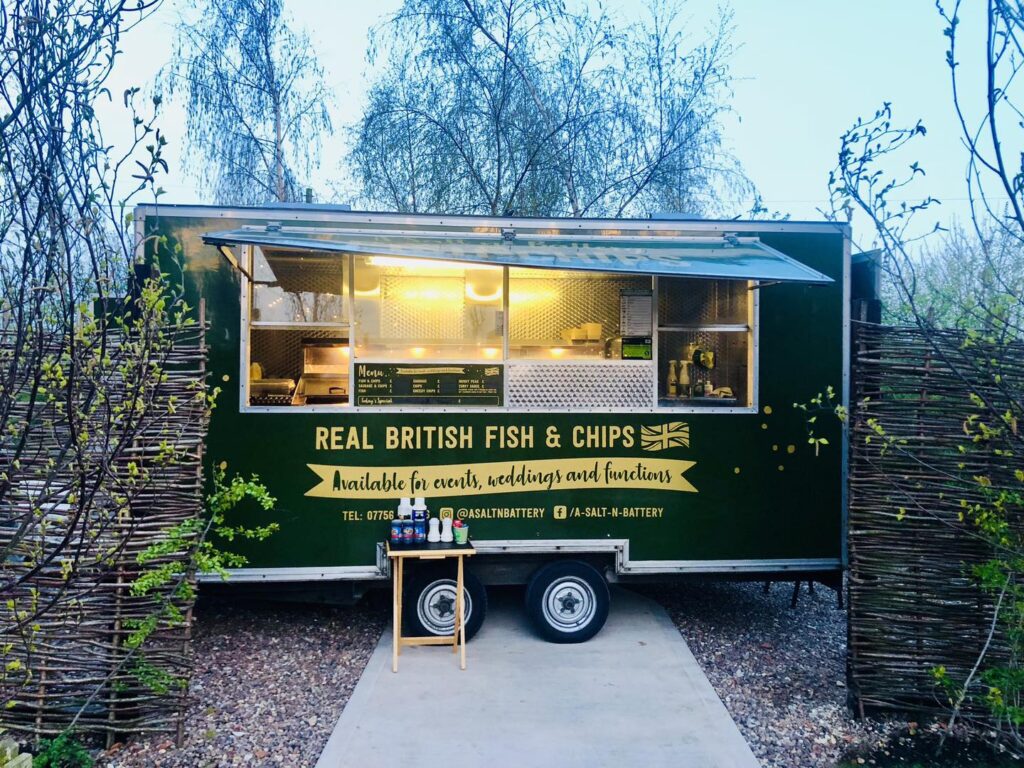
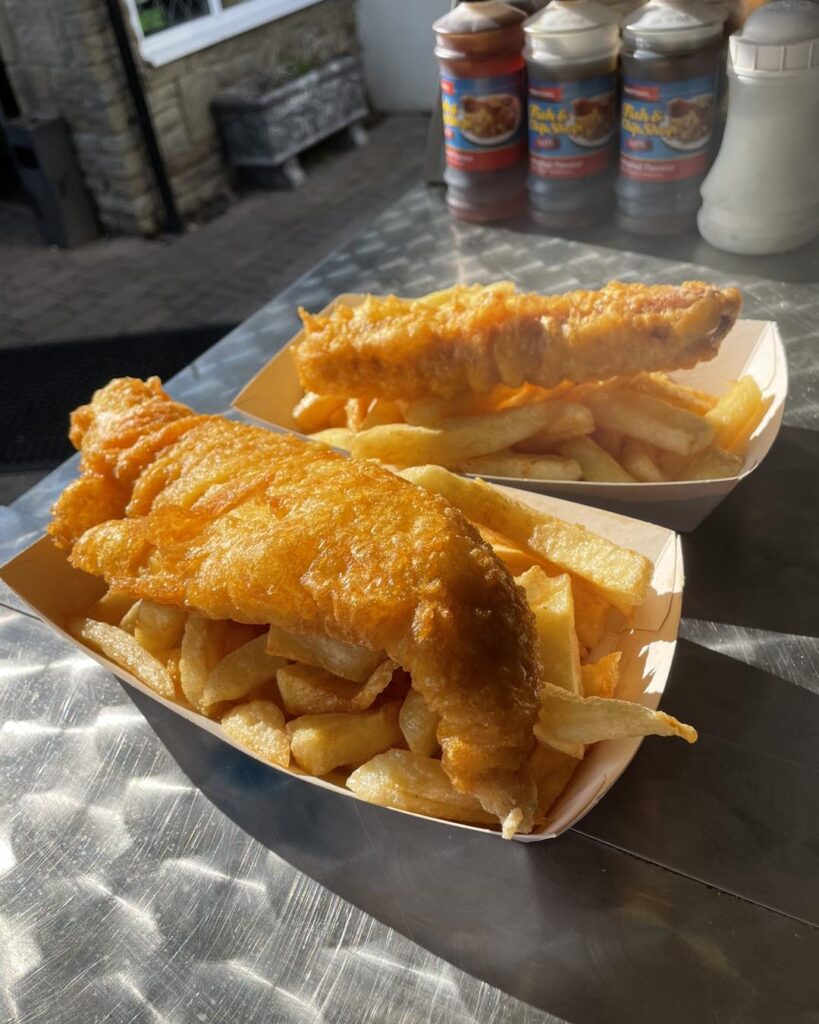
Price rises are something Alison has had to contend with ever since she opened; the latest being potatoes which were £5 when she started but hit £18, although they have fallen back more recently.
“It’s been hard to navigate all the price rises but I’ve tried to keep my costs low in the unit – it’s certainly not a fancy pants van – and I keep my staff costs down too. I do all the prep beforehand and the cleaning at the end of the day myself, I only really get staff to help with the actual serving time. I’ve gone down a size with the fish to keep the cost down for the customers as well.”
Enjoying the satisfaction of providing a service that brings back traditional fish and chip shops to villages, Alison also appreciates the ability to go where the work is, adding: “I think it’s almost like the industry’s asking to be mobile now, because you can go straight to the customer. I think it is the way forward especially for the quieter, little rural fish and chip shops – unless they’ve got an absolutely fantastic, established reputation that they have had for years. I do think mobile is the way forward.”
Recent Posts
- The Cod’s Scallops closes Birmingham branch
- Norway’s frozen cod exports drop in first half of the year
- Marine scientists recommend quota cut for cod but increase for haddock in 2026
- Government sets timeline for Employment Rights Bill measures to come into effect
- National Fish & Chip Awards 2026 open with new category for menu innovation

